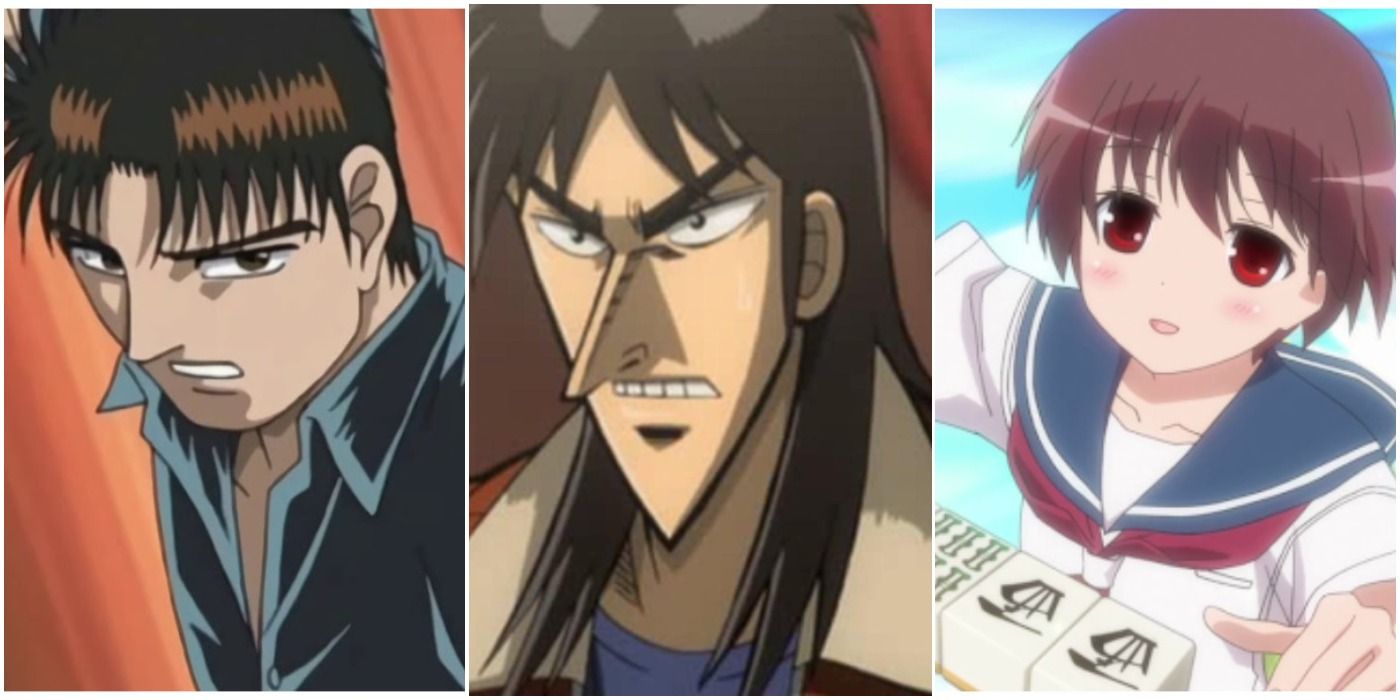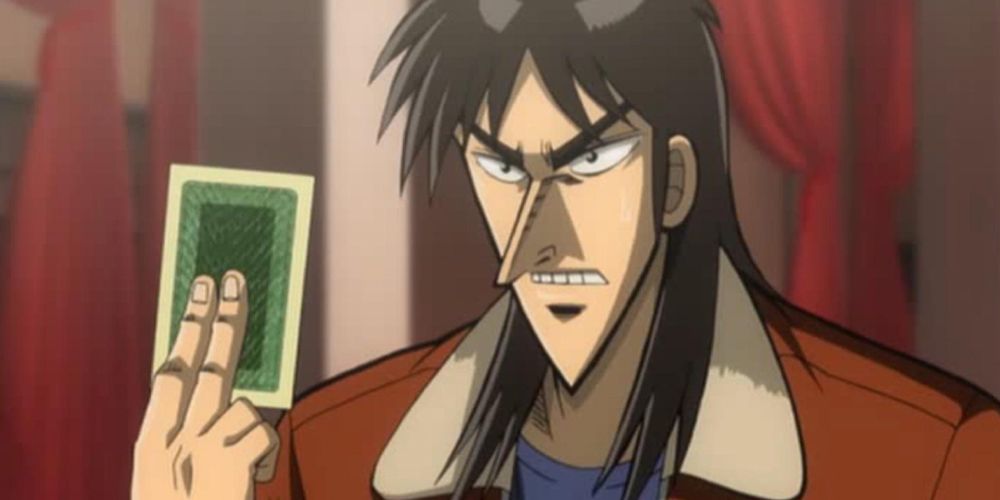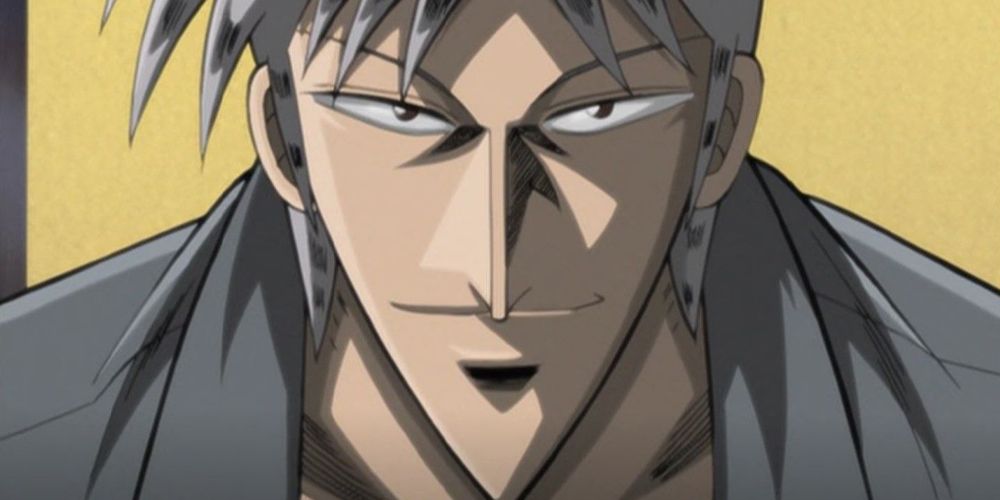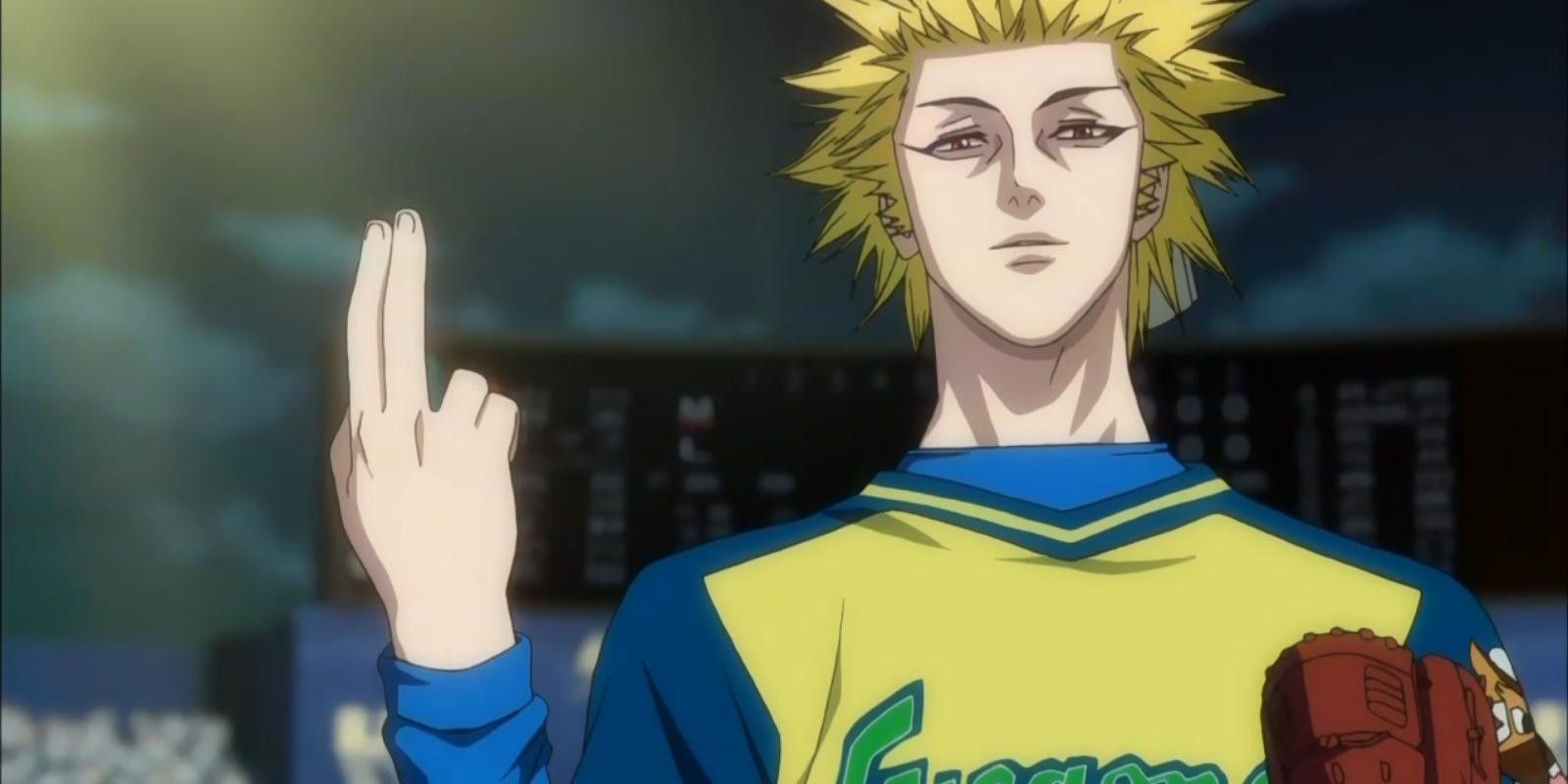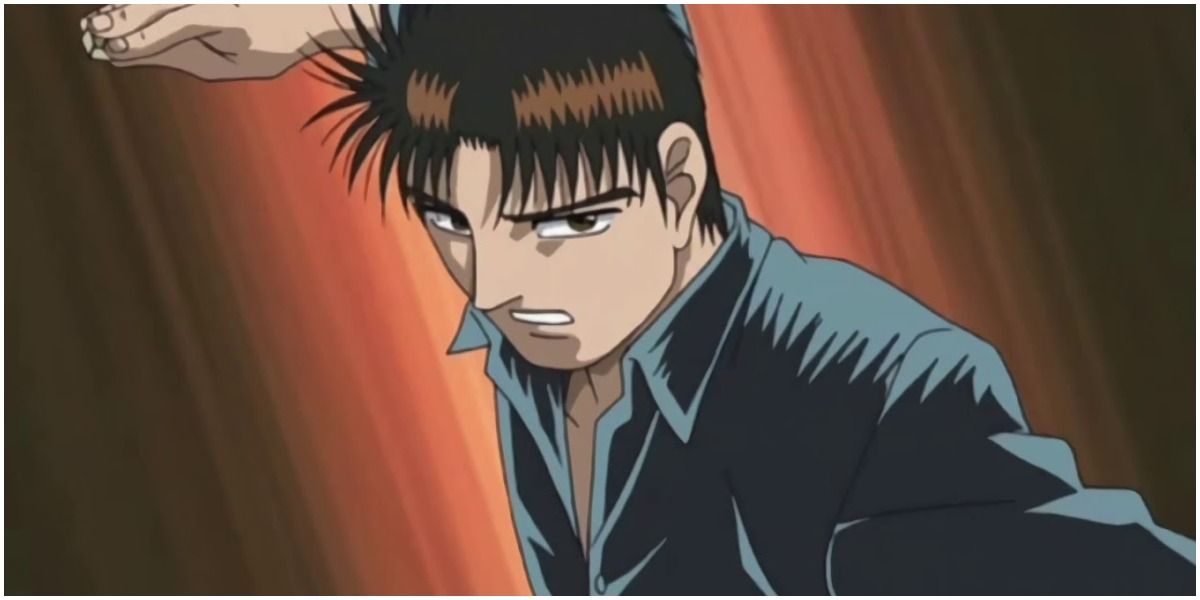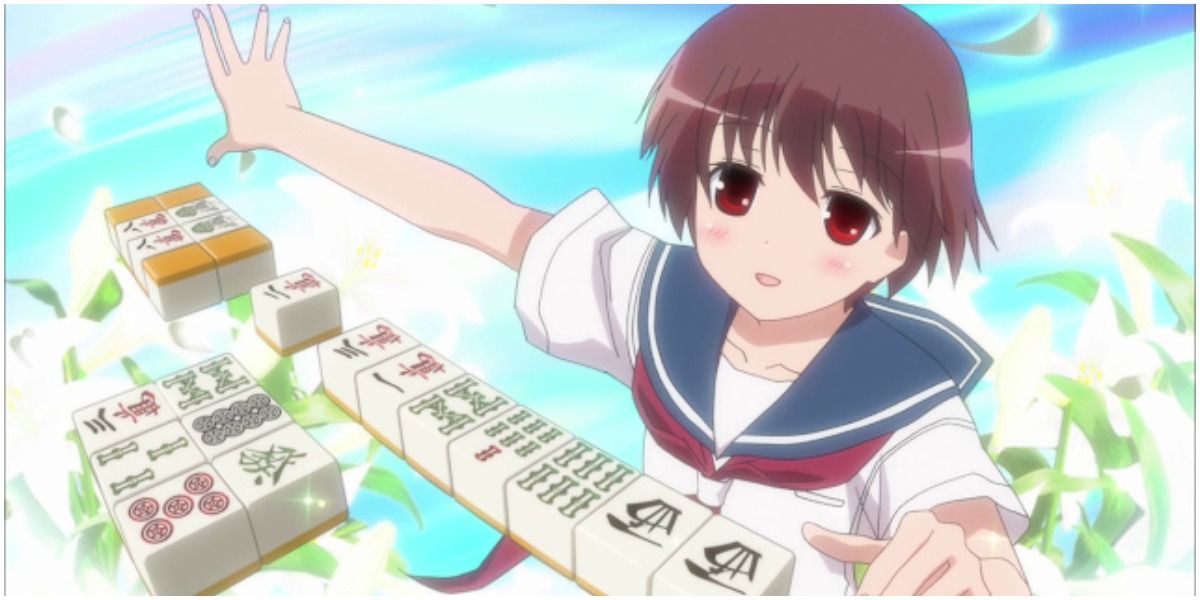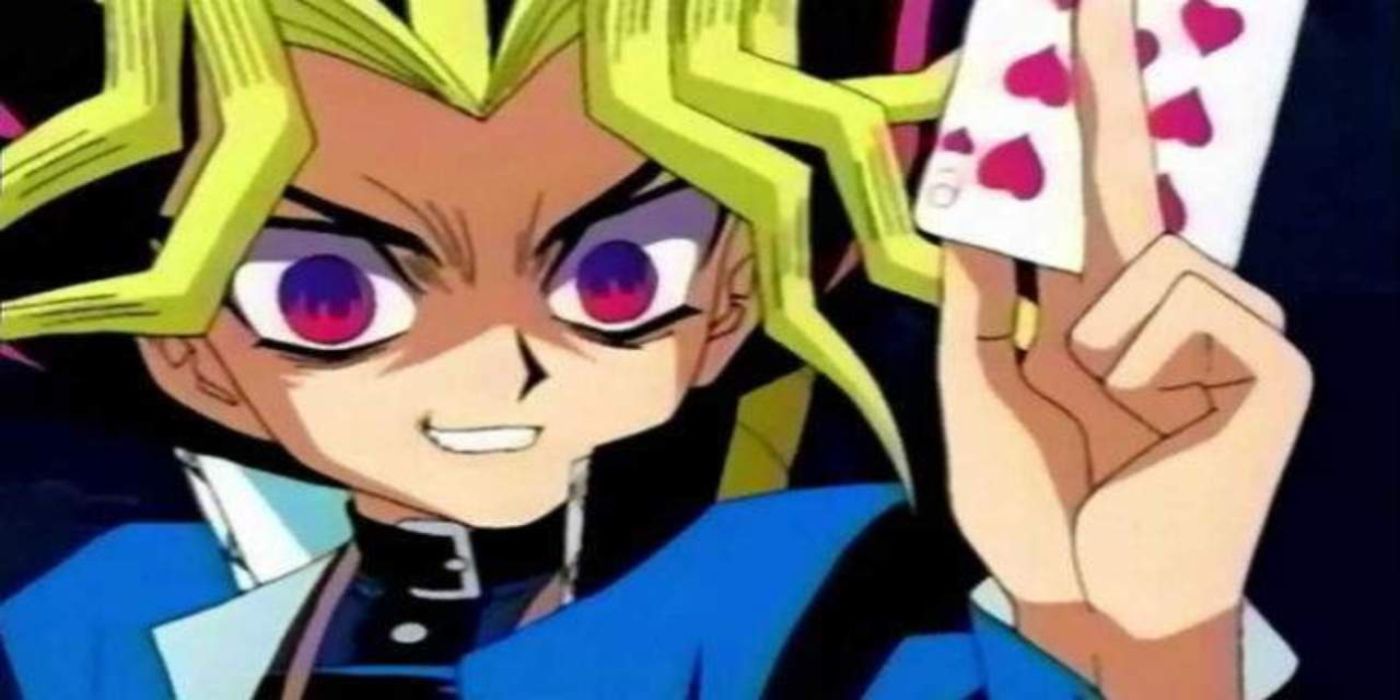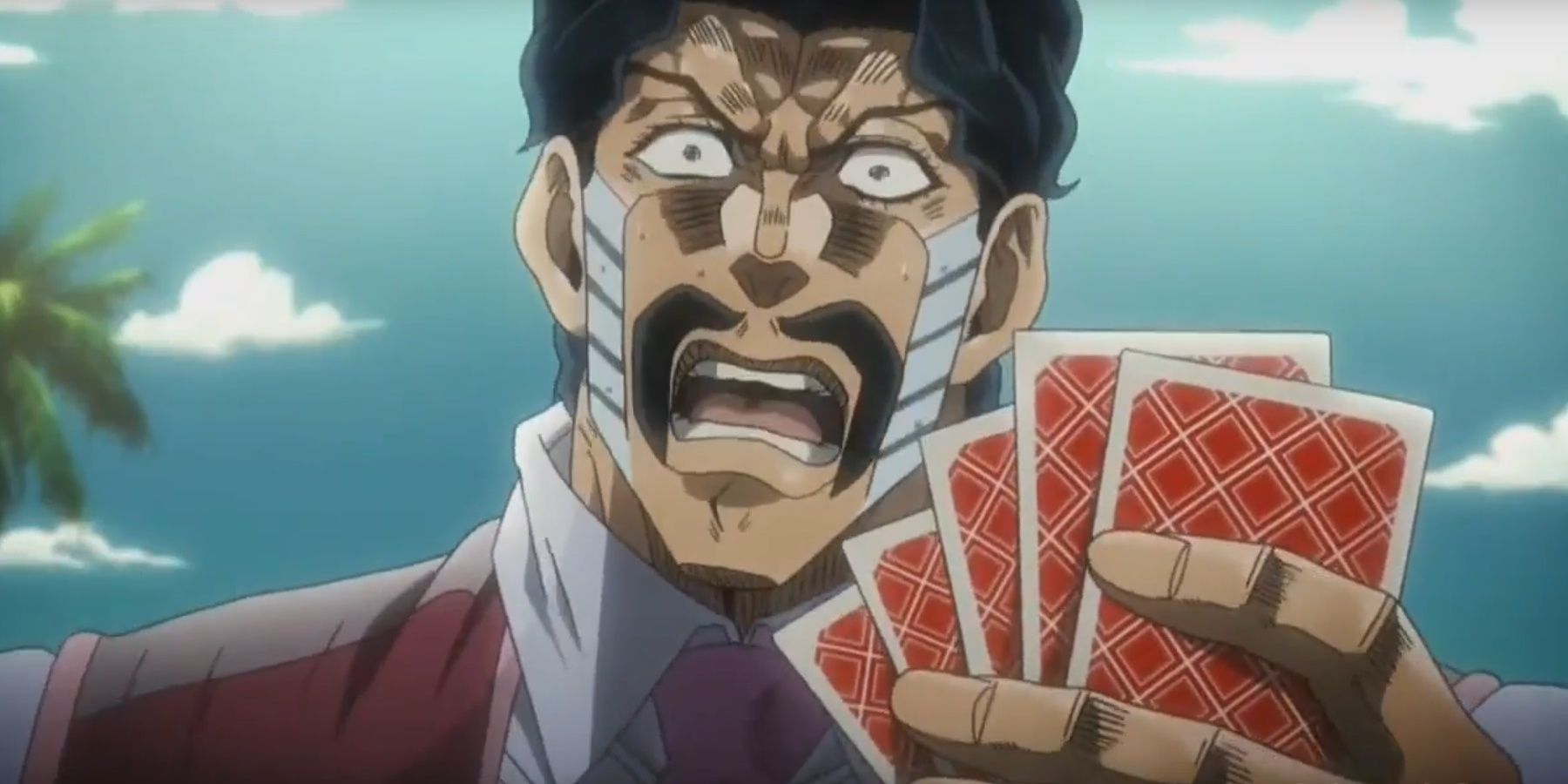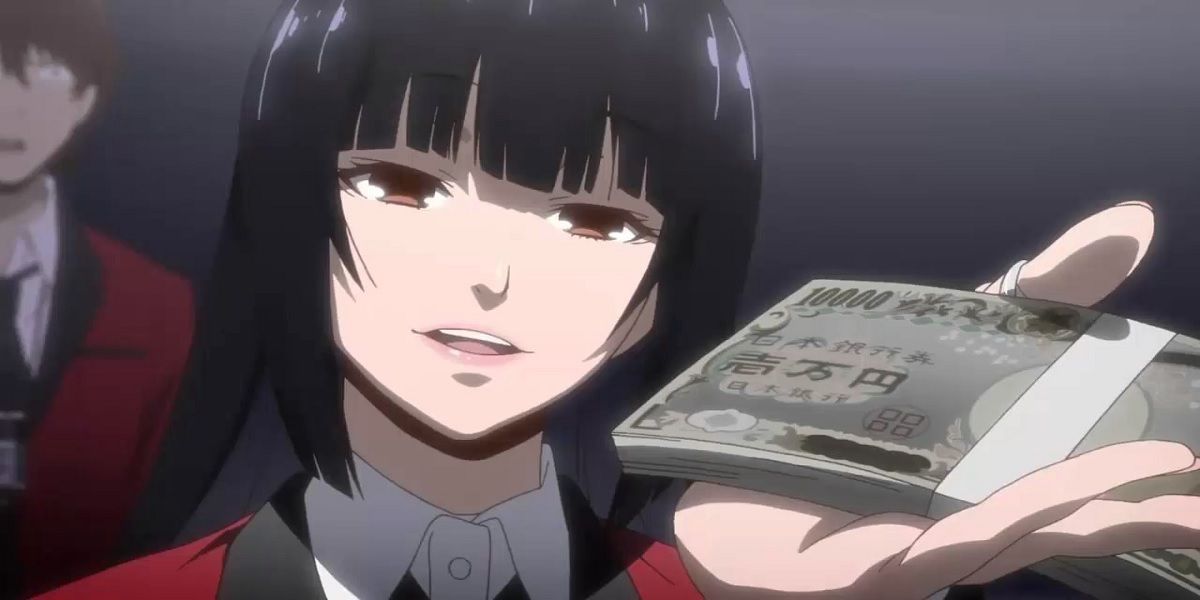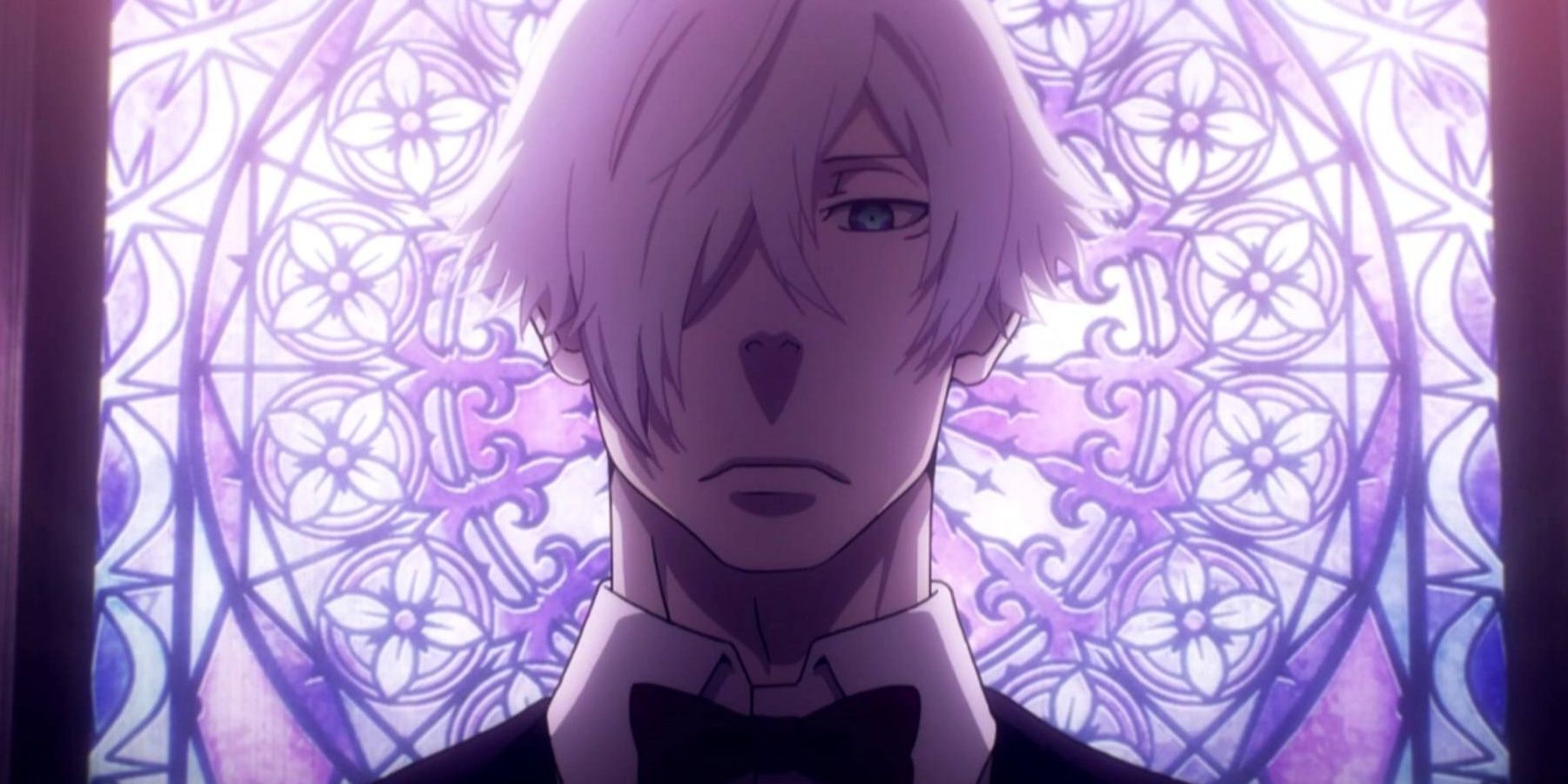Gambling is an activity that's been around for as long as there have been humans. In fact, the first six-sided die has been dated as far back as 3000 BC, suggesting human beings have loved games of chance since before written history. The dopamine rush people get when winning a bet is easily translated into fiction, and both anime characters and audiences alike are no strangers to the adrenaline rush after winning a gamble.
And even though anime and manga specifically focused on gambling are somewhat rare, there are plenty of scenes in non-gambling anime that feature risk-taking and gambling. Not all gambles are created equal, however, and some gambles have much higher stakes than others.
10 Kaiji's Gambles Often Have Human Lives At Stake
Initially a 1996 seinen manga created by Nobuyuki Fukumoto, Kaiji: Ultimate Survivor was produced as an anime television series in October 2007. The series received generally positive reviews for its unique style, and Fukumoto created the anime's gambling games himself to avoid confusing fans with complex rules from existing gambling games.
The result is a high-tension series that frequently puts the titular Kaiji Ito's and other characters' lives on the line during intense gambles. Kaiji has been praised for its attention to psychological friction but criticized for its tendency to rely on deus ex machina and coincidences during gambles.
9 Akagi Pits A Genius Mahjong Player Against The Yakuza
Mahjong Legend Akagi: The Genius Who Descended Into the Darkness is one of Nobuyuki Fukumoto's earlier works, predating the creation of Kaiji: Ultimate Survivor by about five years. Nevertheless, Fukumoto's interest in gambling is on full display in Akagi as well, especially since it's very focused on the particulars of skillful mahjong playing.
The main character, Shigeru Akagi, becomes a famous mahjong player at the tender age of 13 after wandering into a Yakuza-run mahjong parlor and beating the gamblers within. Akagi is a genius gambler who knows mahjong like the back of his hand.
8 One Outs Features Baseball-Themed Gambling
Instead of typical gambling games, such as cards or mahjong, One Outs uses baseball as the source of its gambling energy. Originally created by Shinobu Kaitani as a seinen manga in 1998, One Outs features Toa Tokuchi as its resident gambling expert.
After losing a bet to the ill-fated Lycaons baseball team's star batter, Hiromichi Kojima, Tokuchi is recruited to the team as a skilled pitcher with the hopes that he will carry the Lycaons to their first championship. But Tokuchi's pay is based on his performance: He wins 5,000,000 yen for every out he pitches but loses 50,000,000 yen for every run he gives up.
7 Legendary Gambler Tetsuya Taps Into Post-WWII Depression
Historically speaking, Japan did not do well economically immediately after the Second World War, and it wasn't until the 1950s that it began to recover. Legendary Gambler Tetsuya firmly places its setting in 1947 Tokyo, Japan – specifically, the Shinjuku ward – and focuses on characters gambling at mahjong to make ends meet.
What makes Tetsuya stand out from other mahjong gambling series like Saki and Akagi is its focus on cheating. Every character in this show plays to win and its titular character lives by the motto that "It's only cheating when you get caught. Until then, it's a winning strategy."
6 Saki Combines Mahjong & Cute Girls In Competitive Gaming
"High school girls" and "mahjong" don't seem like terms that would go together, but Saki breaks all expectations with its premise. After years of distasteful mahjong experiences with her family where she was punished whether she won or lost, Saki Miyanaga has learned to play mahjong well enough to end games with a neutral score – a skill that's considered more difficult than just winning. Saki is roped into her high school's mahjong club by her friend, Kyotaro Suga, where she develops a renewed appreciation for the game and enters the competitive mahjong world.
5 Yu-Gi-Oh!'s Season 0 Specifically Focuses On High-Stakes Gambles
Most long-time fans of Yu-Gi-Oh! will be familiar with its infamous Season 0, which has little to no connection to the Yu-Gi-Oh! Duel Monsters anime that succeeded it. Initially, Yu-Gi-Oh! was meant to focus on all kinds of games, not just the Duel Monsters card game, so Season 0 has a lot of game variety.
Another aspect in Season 0 that's not part of the Duel Monsters anime is Yami Yugi's dangerous Shadow Games. Season 0's Shadow Games typically included deadly implements such as lighters and knives, and the consequences of losing the game were nightmarish.
4 [C] Uses The Financial District As Its Gambling Setting
An original anime series that was released in 2011, [C]: The Money of Soul and Possibility Control is a unique entry in anime's vast library. It uses an alternate dimension financial district as its setting where Entres (short for "entrepreneurs") fight with their magical creature Assets against other Entres and their Assets in battles called Deals.
The anime's creator drew inspiration from the bankruptcy of the Lehman Brothers, one of the key events of the financial crisis of 2007-2008 that led to the Great Recession. Entres use their literal futures as collateral in [C], meaning losing will have dire consequences.
3 Jotaro Gambled Against D'Arby With His Friends' Souls As Poker Chips In JoJo's Bizarre Adventure
Gambling with someone's literal soul on the line is one of the most intense gambles known to fiction and JoJo's Bizarre Adventure didn't miss its chance to play with this trope. During JoJo's Part 3: Stardust Crusaders, Jotaro Kujo faces off against Daniel J. D'Arby, the self-proclaimed greatest gambler.
But like many gamblers, D'Arby cheats, and he intends to run off with the souls of the entire Joestar group. After losing the first hand, Jotaro suspected cheating may be afoot, so he used his impressive poker face to pressure D'Arby into fainting with fear.
2 Kakegurui Features A Self-Proclaimed Gambler's Paradise
Hyakkaou Private Academy is the setting for Kakegurui – Compulsive Gambler, and it's touted as a gambler's utopia where students are rewarded for being skilled at gambling. Hyakkaou's politics are cutthroat, and the students who end up in massive debt are forced to literally sign their futures away to absolve the debt or become "house pets" for the academy's wealthier students.
At the center of the series' plot is Yumeko Jabami, the series' titular compulsive gambler, who thrives on the riskiest of bets. Kakegurui's gambling is always a thoroughly titillating experience with plenty of fanservice.
1 Death Parade's Gambles Decide The Fate Of Souls
The main point of Death Parade is for the afterlife's arbiters to decide whether a soul will be reincarnated or simply vanish into the void, and the judgments in Quindecim bar are decided via Death Games. Death Games are deceitful in appearance since they resemble ordinary games – billiards, darts, and arcade games, among others.
Everyone who ends up in Quindecim, however, has died in pairs, and they have to play against each other during the Death Games. Scoring points in the games typically has negative effects on the opponent, making them nerve-wracking to behold.

